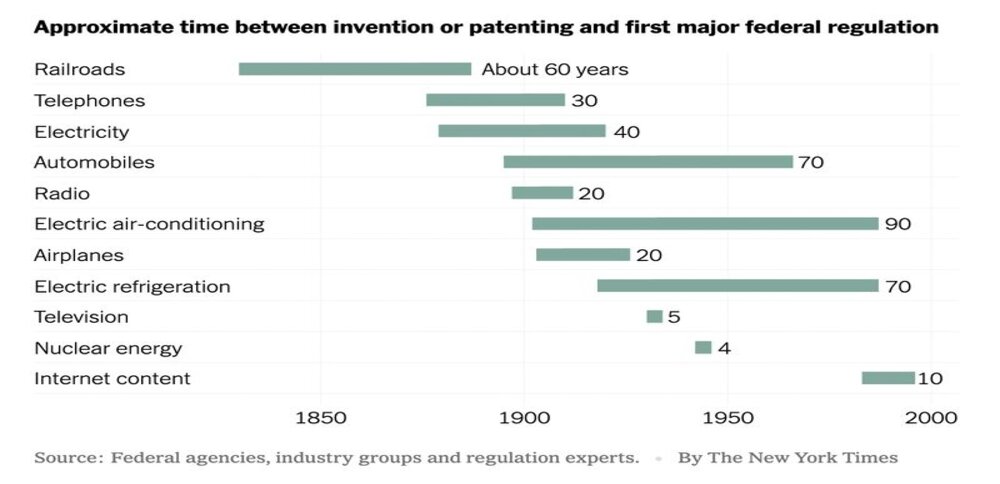The benefits of AI are known — or mostly known — since it’s impossible to anticipate all of its future benefits. The abuses are also mostly known — and include such things as misinformation, labor disruptions, copyright infringement, electoral manipulation, and more.
It’s clear that this technology needs to be regulated, and this is the comb where the hair tangles.
Regulations mean minimizing potential risks while harnessing potential benefits. Therefore, before regulating, one has to understand why we are regulating. Plus, since some aspects of AI may not fall under any existing agency’s jurisdiction, are we to create a new one?
History tell us that it has often taken many years for governments to create agencies to regulate new technologies. According to a chart published in The New York Times, the shortest period for a U.S. regulation to be put into place was four years, and that was for nuclear energy. Railroads on the other hand, took 60 years. Radio took 20 years. And television was just five years old before it began being regulated.
In the U.S., the Federal Radio Commission was a regulatory agency created in 1927. In 1934, that was replaced by the Federal Communications Commission, which included a video division. It also oversees the telecommunications industry, which was previously under the Interstate Commerce Commission. However, cable TV is not regulated by the FCC, but by local franchising authorities.
As for AI, the general opinion is that the technology will advance much faster than any legislative body’s resolutions, and that many of its rules will be obsolete before they’d even be put into play. But in the meantime it is hoped that the industry is at least clear about AI-generated and AI-assisted content.










Leave A Comment